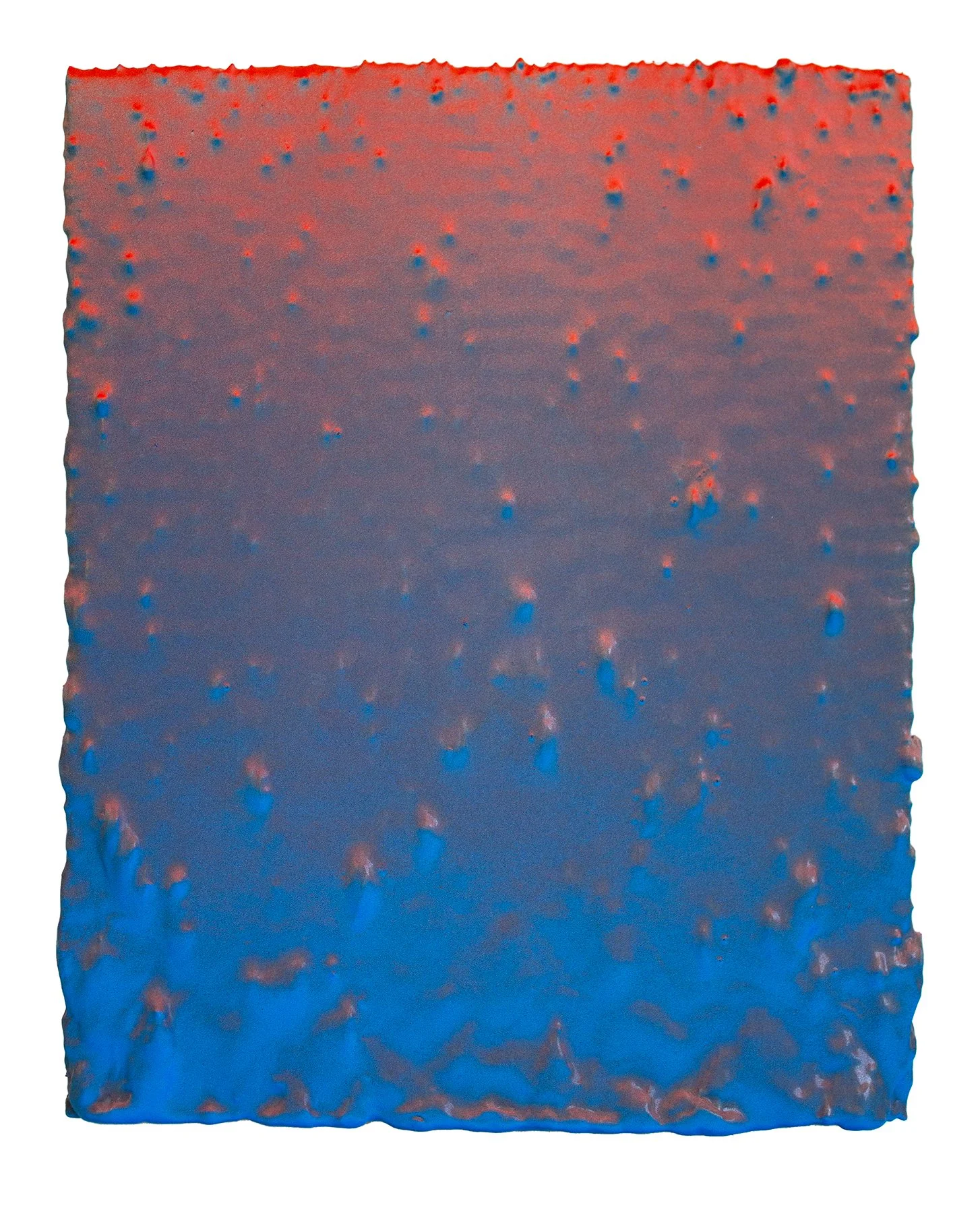 Image 1 of 2
Image 1 of 2

 Image 2 of 2
Image 2 of 2



Antediluvian no. 56
Antediluvian no. 56
acrylic on panel
16”x20”
2020-2024
$975
By Stefan Zoller @stefanzollerstudios
Artist Statement:
Landscapes can be transformed over eons with the steady stream of river water, the ebb and flow of ocean tides, or the creeping movement of glaciers.Likewise, a landslide, flood, avalanche, or volcanic eruption can reshape the earth in a matter of minutes or hours.The procedural spirit of my work pulls from both of these extremes.Gravity, sedimentary build-up, erosion and deposition, fissuring, stalactite formation, combined with a broad unpredictability and irregularity are all on display in varying forms and combinations.
The counterpoint to the organic, geological references is found in the line work taken from civil engineering diagrams.Their original application sought to control and overcome nature in the service of some greater humanitarian function.They point towards humankind’s need to organize, to survive, and to remember.While some exist purely as line drawings, others are subject to the extreme painterly processes rooted in the natural forces listed above.They are drawn, layered, buried, eroded, obscured, erased.My hope is that these paintings can function as a sort of memorial - not to one specific person or group but in a universal sense.
BIO: Stefan Zoller (b. 1986, New York) is a visual artist based in Rochester, NY.Zoller earned an MFA in Painting from Syracuse University in 2016 and a BA in Studio Art from Houghton University in 2008.From 2008-2010, he worked as an apprentice to the painter Thomas S. Buechner in Corning, NY.
Zoller is an Assistant Professor at Nazareth University, where he teaches painting and drawing.His work has been exhibited in group and solo exhibitions nationally and internationally, including a recent solo exhibition, Procedural Spirit, at Corners Gallery in Ithaca, NY.Zoller’s work was also featured in the Mid-Atlantic New Painting at the University of Mary Washington in Fredericksburg, VA and Symbiosis and Interrogation at the Haidai Art Museum in Shandong, China.
Antediluvian no. 56
acrylic on panel
16”x20”
2020-2024
$975
By Stefan Zoller @stefanzollerstudios
Artist Statement:
Landscapes can be transformed over eons with the steady stream of river water, the ebb and flow of ocean tides, or the creeping movement of glaciers.Likewise, a landslide, flood, avalanche, or volcanic eruption can reshape the earth in a matter of minutes or hours.The procedural spirit of my work pulls from both of these extremes.Gravity, sedimentary build-up, erosion and deposition, fissuring, stalactite formation, combined with a broad unpredictability and irregularity are all on display in varying forms and combinations.
The counterpoint to the organic, geological references is found in the line work taken from civil engineering diagrams.Their original application sought to control and overcome nature in the service of some greater humanitarian function.They point towards humankind’s need to organize, to survive, and to remember.While some exist purely as line drawings, others are subject to the extreme painterly processes rooted in the natural forces listed above.They are drawn, layered, buried, eroded, obscured, erased.My hope is that these paintings can function as a sort of memorial - not to one specific person or group but in a universal sense.
BIO: Stefan Zoller (b. 1986, New York) is a visual artist based in Rochester, NY.Zoller earned an MFA in Painting from Syracuse University in 2016 and a BA in Studio Art from Houghton University in 2008.From 2008-2010, he worked as an apprentice to the painter Thomas S. Buechner in Corning, NY.
Zoller is an Assistant Professor at Nazareth University, where he teaches painting and drawing.His work has been exhibited in group and solo exhibitions nationally and internationally, including a recent solo exhibition, Procedural Spirit, at Corners Gallery in Ithaca, NY.Zoller’s work was also featured in the Mid-Atlantic New Painting at the University of Mary Washington in Fredericksburg, VA and Symbiosis and Interrogation at the Haidai Art Museum in Shandong, China.